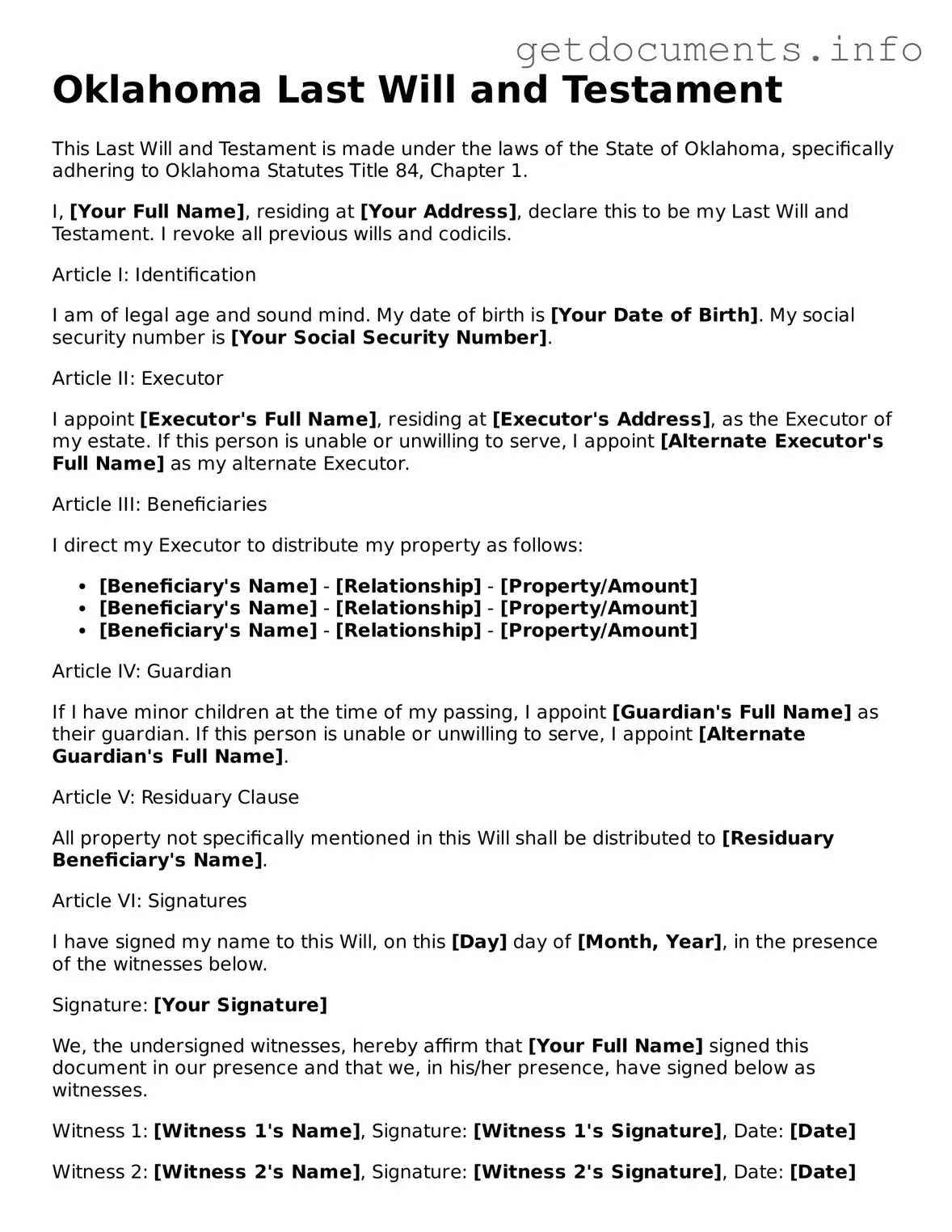Free Last Will and Testament Template for Oklahoma
A Last Will and Testament form in Oklahoma is a legal document that outlines how a person's assets and affairs should be managed after their death. This form allows individuals to specify their wishes regarding the distribution of their property and the care of any dependents. To ensure your wishes are honored, consider filling out the form by clicking the button below.
Access Last Will and Testament Editor

Free Last Will and Testament Template for Oklahoma
Access Last Will and Testament Editor
Got places to be? Complete the form fast
Fill out Last Will and Testament online and avoid printing or scanning.
Access Last Will and Testament Editor
or
⇩ PDF File
